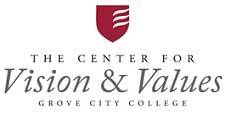by Dr. Andrew Mitchell


Grove City, PA -(AmmoLand.com)- Five score and two years ago, Robert Frost wrote “Mending Wall,” a poem seeking to extract wisdom from stony New England soil.
It begins: “Something there is that doesn’t love a wall.” While he didn’t have Donald Trump’s campaign rhetoric in mind, our former poet laureate expressed the fundamental concern of our modern age. If we’re all members of one human family, why are there still barriers between people, and how can we begin to knock them down?
The belief that most barriers, if not all, are artificial and have deleterious effects, and the desire to dismantle them have become tenets of faith for all “global citizens.” Now, in 2016, the traditional idea that Frost derided—“Good fences make good neighbors”—has been taken, like everything else, to extremes. Mr. Trump has turned the good fence into a long, high wall, while John Kerry and President Obama in their recent commencement addresses have reminded the up-and-coming elite that the new “international order” is a “borderless world.” They ridicule future fence-builders as frightened children, vainly hiding from an imaginary bogey-man.
Lost in all this blustering is that simple fact that every sensible wall or fence has a gate. Before one can critique a wall (real or proposed), there are some basic questions that need asking: what is it enclosing, what is it excluding, and who are the gatekeepers?
Lamentably for a brilliant poet, Frost’s impression that nature reacted against boundaries is fundamentally incomplete. Even a brief reflection brings to mind three good, natural walls.
The ozone layer keeps in the sun’s warmth, while keeping out the sun’s harmful rays.
Your cell membranes are very particular about what substances they let in. Too much Trump or too much Obama, and the cell dies.
Then, there’s your skin. This essential boundary is great at transferring Vitamin D while keeping your insides in.
These barriers serve as ecological and biological gatekeepers, preserving arenas where life flourishes: in short, homes. They bring in and yet also keep out elements in the natural world: elements which, though good on their own, become harmful when introduced in uncontrolled quantities.
When transferred to the human world, guardians take on an intentional responsibility to the communities they protect. Lamentably many guardians today—parents, teachers, religious leaders, politicians—disparage or abdicate their responsibility, or worse, leave themselves no time to be one, as they feverishly work at the American Dream while sacrificing their homes.
Content with a postmodern world that challenges and tears down life-giving relational standards, we Americans routinely signal a profound lack of confidence in the steps we’re taking. And yet we bluster all the more loudly for it. There are no guardians who will protect us from the bugaboos that haunt our nightmares, political or otherwise.
In such a disconcerting environment, it is right and proper to turn to those institutions that have comforted most men and women in history: family, religion, and local society.
Here, however we find the nuclear family, and the rite that shaped it, exploding like the bombs over Hiroshima and Nagasaki, unleashing potent forces whose destructive effects on individual and communal life have yet to be calculated. Those who still practice religion face the challenge of adhering to doctrines deconstructed and mocked by daring scholars. As for the local societies global economic trends since the 1990s have created as much disruption to life as they have benefits.
What America is facing today are not solutions to problems facing home and homeland, but their dissolution. Any proper response here would require both prudence and a proper respect for human complexities, made in the image of God and yet sinners. It may begin with an acknowledgement that despite the seductions offered by our present-day Vanity Fair, all us immigrants and descendants of immigrants really want is a home.
Frost’s lament, although admirable and winsome, is incomplete. There is something that loves a wall. Humanity needs walls with gates beginning with the family and the home. We need to invite people to our homes, creating arenas where young and old learn generosity, next to justice, the foundational virtue of any community. Your home is the place to preserve boundaries and distinctions while at the same time learning that the deepest love is only possible because of differences. True hospitality requires a host, and a truly caring host is one who has a rooted sense of home. In order to more properly receive our future guests, whether they come from foreign lands or our own loins, we need to get our home in order.

The very first step might be finding it and mending it because the world needs better homes and guardians.
About the Author:
Andrew Mitchell is an assistant professor of history at Grove City College and a contributing scholar for The Center for Vision & Values.
